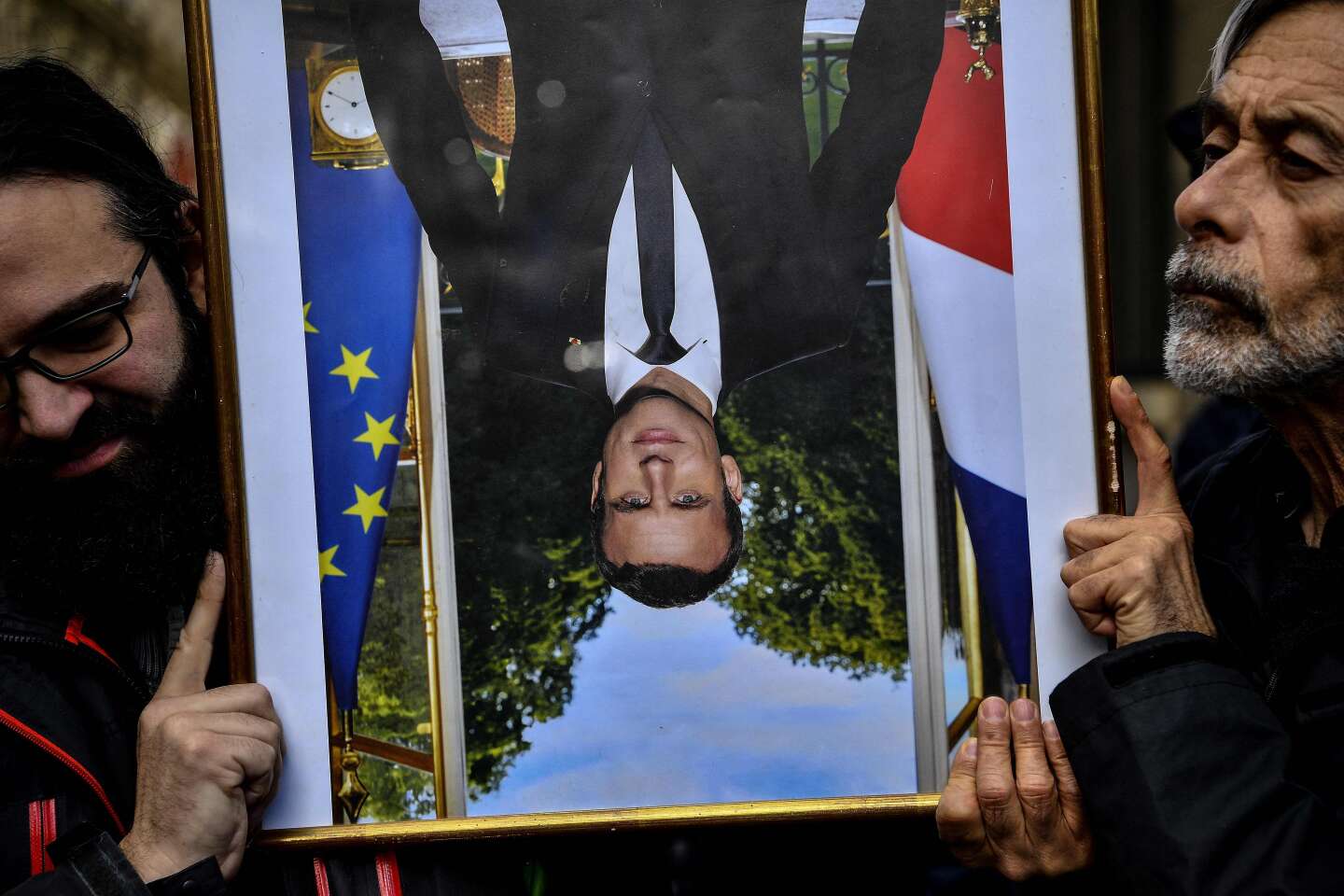The climate activists who had taken down the portraits of Emmanuel Macron in the town halls, to denounce “political void” of the Head of State have had their appeals against several courts of appeal dismissed. On Wednesday May 18, the criminal chamber of the Court of Cassation rejected their requests, considering that the convictions of these activists from Alternatiba and ANV-COP21 did not infringe in any way “disproportionate” to the freedom of expression of these activists, a reason they had invoked.
A dozen activists were prosecuted, after actions committed in Paris, on February 21 and 28, 2019, in La Roche-de-Glun (Drôme), on April 13, 2019, and in Lingolsheim (Bas-Rhin), on July 29, 2019 , and were sentenced to a suspended fine of several hundred euros according to the three judgments of the courts of appeal of Paris, Grenoble and Strasbourg respectively. “It’s a disappointment, but the decisions of the Court of Cassation bring new elements, which will be useful for us to continue the debate and the legal actions”said Wednesday, one of the applicants’ lawyers, Paul Mathonnet.
The latter will now turn to the European Court of Human Rights. “We are thus going to continue the debate on this non-violent mode of action, which mobilizes, to a large extent, young people and which is all the more necessary since the climate emergency is growing and President Macron has been re-elected and therefore risks continuing to pursue a policy that is not up to the challenges”said Pauline Boyer, one of the Parisian portrait “dropouts”.
For the activists as for their lawyers, one of the important points lies in particular in the recognition by the Court of Cassation that facts relating to a criminal offence, in this case the theft of an object, can constitute a means of freedom expression, “taking into account the nature and context of the act in question”. “The Court of Cassation confirms with this decision that freedom of expression can justify non-violent militant actions when they relate to subjects of general interest such as climate change”, thus estimated Me Paul Mathonnet.
Exercise of freedom of expression
With regard to the theft of the portraits of the President of the Republic, the prosecuted activists argued that the facts, which they recognized – especially since they were acting with their faces uncovered and claimed their actions before the press – “were part of the exercise of freedom of expression and obeyed a political motive, because they aimed to compel public authorities to act in the face of the climate emergency”can we read in judgments of the Court of Cassation.
You have 40.14% of this article left to read. The following is for subscribers only.
–


